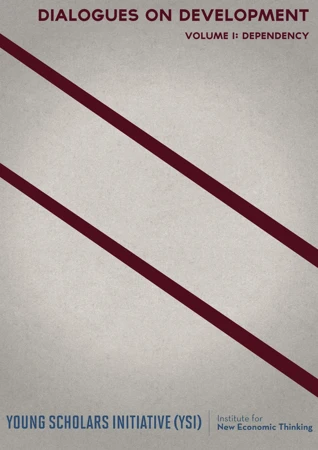Dialogues on Development

Book summary
The volume, released by YSI’s Economic Development Working Group, comprises interviews with 13 scholars from around the world who express a variety of viewpoints on the meaning and relevance of dependency theory in today’s context.
Is it time for dependency theory to make a comeback? Its central idea is that developed (”core”) countries benefit from the global system at the expense of developing (”periphery”) countries—which face structural barriers that make it difficult, if not impossible, for them to develop in the same way that the already developed countries did. As neo-classical economics came to dominate the field in the 1980s, the theory lost prominence and traction. Given the vast imbalances that persist within and among nations in the global economy today, it’s an opportune time to revisit the framework.

